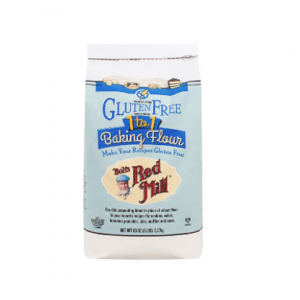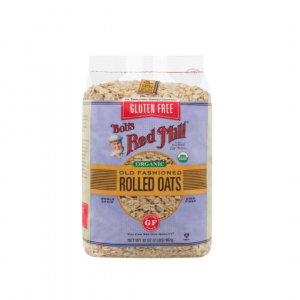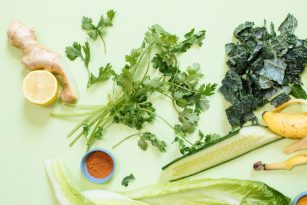A common issue related to your digestive tract, irritable bowel syndrome (IBS) can cause a long list of IBS symptoms, including bloating, gas, and more.
Irritable bowel syndrome, also known as IBS, affects about 10% to 15% of the country’s adult population. However, only about 5% to 7% of people actually receive a diagnosis (1). That’s why it’s important to familiarize yourself with some of the most common signs of IBS and talk to your doctor or dietitian to help make a personalized plan that can help you feel your best!
Many of my clients come to me with digestive issues and after discussing their lifestyle, diet, stressors, etc., we work together to come up with a plan that relieves those symptoms but also gets to the root cause of the issue. For some women, it may be food intolerances while for others, it’s the absence of nutrient-dense foods or foods rich in probiotics. Meanwhile, for others, stress and other lifestyle choices may also play a role in causing irritable bowel syndrome symptoms.
If you or a friend has IBS and wants to know how to recognize IBS symptoms, and what changes (including food choices) to make to your lifestyle to help alleviate discomfort, keeping reading for more about IBS and what to be aware of.
What is IBS?
Irritable bowel syndrome is a disorder that affects bowel function, mainly in the large intestine. This means that you’ll still experience irritable bowel symptoms, even though nothing is wrong with the body anatomically. These symptoms include changes in bathroom habits such as constipation and diarrhea, which are usually accompanied by other adverse side effects like IBS pain and bloating.
You might also experience symptoms that have nothing to do with your digestion, including problems like muscle aches and pains, fatigue, the sudden urge to urinate, pain during intercourse or lack of libido. Women are more likely than men to get IBS, and a family history of the condition may also increase your risk (1).
While IBS does not cause life-threatening issues, it can severely disrupt your everyday life, because the symptoms typically last a long period of time. However, you can learn to control IBS symptoms by making a few simple modifications to your daily routine.
IBS Symptoms
Most people with IBS experience digestive issues at one point or another, which can range from changes in regularity to other issues like depression and lack of appetite. Here are some of the most common IBS symptoms that have been reported:
- Stomach pain
- Bloating
- Constipation
- Diarrhea
- Nausea
- Indigestion
- Stomach cramps
- Gas
- Anxiety/depression
- Decreased appetite
Differences Between IBS and IBD
Though IBS does not lead to serious health concerns, inflammatory bowel disease (IBD) can. To be more specific, IBD refers to digestive conditions such as Crohn’s disease and ulcerative colitis, which are serious disorders that cause inflammation and scarring in the lining of the intestines.
Symptoms that set IBD apart from IBS include blood in the stool, diarrhea that wakes you up at night, unexplained weight loss, vomiting, difficulty swallowing, persistent pain, and changes in your typical IBS symptoms (2). In these cases, it’s extra crucial that you see a doctor, as these could potentially be signs of a more serious problem.
Causes of IBS
Unfortunately, doctors are unsure of exact irritable bowel syndrome causes. However, several different factors may contribute to symptoms, including (1):
- Abnormal bowel motility (either too fast, leading to IBS diarrhea or too slow, causing constipation)
- Alterations in pain signals from neurotransmitters that send messages from the brain to the intestines and vice versa
- Sensitive intestines
- Intestinal infection
- An overgrowth of bacteria in the gut
- Food intolerances
Although not major causes, several other factors can lead to IBS-related pain and discomfort in the gut (2):
- Diet
- Stress
- Physical activity
- Hormone levels
IBS Treatments
The bad news: there’s no one cure-all for IBS. The good news: making a few minor lifestyle tweaks could potentially be an effective irritable bowel syndrome treatment.
For example, following a low FODMAP diet—which includes cutting out certain types of carbohydrates—has helped people control symptoms (1). Slowing down your eating and practicing mindfulness as part of a well-rounded irritable bowel syndrome diet can also help.
One study also found that exercise can help alleviate GI problems, so make sure you’re up and moving more throughout the day (3).
Other recent research showed promising results from a home-based treatment program that involved cognitive behavioral therapy, which is likely because stress can bring on symptoms. The program focused on teaching patients about the brain-gut connection, how to self-monitor symptoms, common triggers and what happens to the body after those triggers, how to control worrying, and strategies for muscle relaxation and problem-solving (4).
Finally, another recent study found that vitamin D supplementation could help ease IBS symptoms (5). Vitamin D is a fat-soluble vitamin that is produced by the skin in response to sun exposure. Unfortunately, it’s not found naturally in very many food sources, so you may want to consider supplementation if you’re not spending much time outside.
Recipes That Could Help with Digestion
Following the low-FODMAP diet doesn’t have to be restrictive. In fact, you can still eat many of the delicious foods you love! While a low-FODMAP diet may not be the answer for everyone who suffers from IBS, it can be a good start to uncover potential food triggers and discover intolerances with your dietitian.
Here, a few recipes to try throughout your day that don’t the typical FODMAP trigger foods:
- Coconut Quinoa Flake Porridge
- Blue Buckwheat Pancakes with Blueberry Sauce
- Gluten-Free Bread Rolls
- Avocado Grapefruit Ceviche
- Turkey Avocado Greens Wrap
Note: You’ll want to use 1/8 of the avocado in these recipes to keep it low FODMAP-friendly.
NS Recommends
Though it might be difficult to come to a diagnosis and to find treatment for your symptoms for IBS, it is definitely possible. If you have been feeling any digestive discomfort for days or weeks, it’s time to speak to your doctor to get to the root of your issue. A few changes to your diet and lifestyle can have a huge impact on symptoms and can help get you back to feeling your best.
If you’re looking for more personalized support and ways to prevent IBS symptoms, then check out our Wellness Coaching. We offer appointments virtually and all of our NS Wellness Coaches are professionally trained to give you expert guidance and practical plans for long-term health! Click here to take the client quiz.















